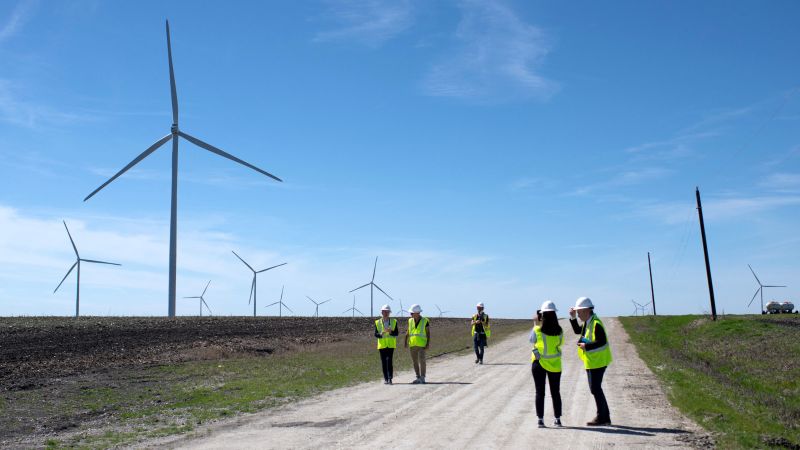Republican Resistance to clean energy Investments: A Barrier to Progress
Despite billions of dollars being invested in clean energy initiatives across numerous Republican-leaning communities in the United States, GOP officials are digging in their heels against efforts to reduce reliance on fossil fuels. This contrast has been disillusioning for environmentalists who expected more economic opportunity in red places to translate to less political opposition from Republicans to the transition toward a clean energy economy necessary to avert catastrophic global climate change. The persistence of GOP resistance to the change underscores the limitations of economic incentives in overcoming ideological inclinations, pointing to years of partisan conflict that may make setting a consistent course on climate policy nearly impossible.
Last week, almost every House Republican voted to repeal the clean energy incentives in the Inflation Reduction Act, even though 72 Republican-held districts, including more than two dozen that have received investments of over $1 billion in new plants or expansions of existing facilities, have already benefitted from those incentives. Republican state attorneys general from states that are among the top beneficiaries of new clean energy investments and jobs have also launched lawsuits and other legal proceedings against proposals from President Joe Biden’s administration to accelerate the transition to a low-carbon economy.
Republicans and conservative activists are framing defense of fossil fuels and skepticism of clean energy alternatives as a culture war issue, with the shift to wind, solar, and electric vehicles being compared to restrictions on gun ownership, “woke” indoctrination in classrooms, and transgender rights. Republicans, with growing boldness, are indicating that defense of fossil fuels will be a better strategy to help them win than focusing on jobs and the economy, as they see opposing measures to promote clean energy as an example of coastal elites trying to erase traditional American values.
Climate change has become another contested issue pitting the Democratic “coalition of transformation,” largely embracing America’s multifaceted changes, against the Republican “coalition of restoration,” which opposes these changes. Red states are generally more integrated into the existing fossil fuel industry than blue states, and energy transition is currently remaking this picture. The new clean energy economy is projected to create 142,000 jobs, with nearly four-fifths of clean energy investments announced being located in Republican-held congressional districts since the Inflation Reduction Act‘s passage last year.
Despite the widespread economic benefits that red places have derived from new clean energy investments, Republican resistance to change has remained strong. Lori Lodes, executive director of Climate Power, said that the model of spreading defense contracts across congressional districts has been critical to sustaining a long-term effort to promote clean energy. However, establishing these political roots will take time, and opponents have stiffened their resistance to the government’s measures to accelerate the transition as Biden leans into it. With the next election, climate policy could become a central issue in modern American politics, and the outcome could have far-reaching consequences for the nation’s development and its role in the world.
Original Story at www.cnn.com – 2023-05-02 04:14:00
